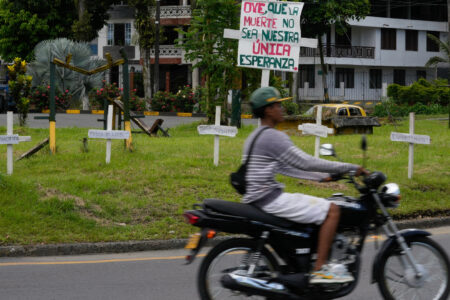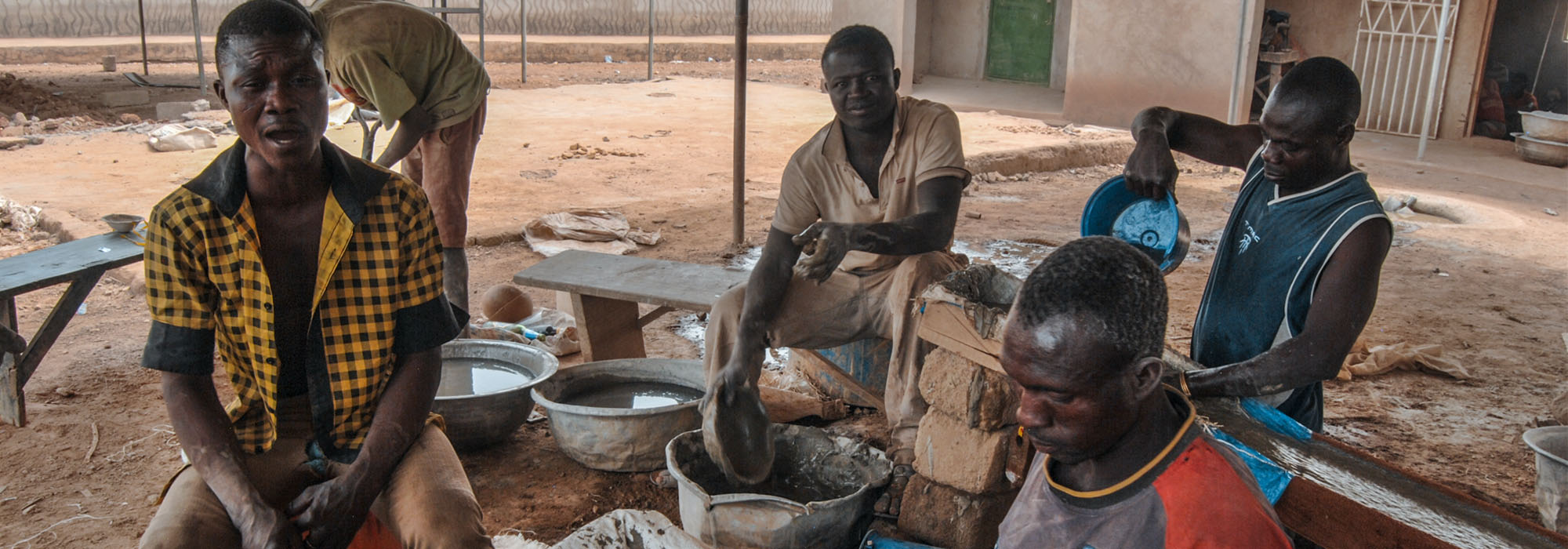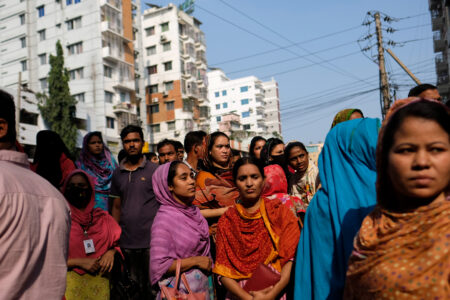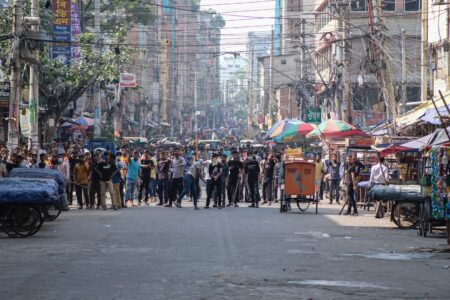
Canada’s international development assistance for developing regions like sub-Saharan Africa received scant attention in the recent (2019) election. Under Justin Trudeau’s Liberals Canada’s commitment to international development has been much lower than many other Conservative governments around the world. Canada is fortunate to have a considerable endowment of minerals and metals. Africa also holds 30 percent of the worlds mineral resources. But Africa, despite being so richly endowed, has drawn little benefit from this mineral wealth and remains one the poorest continents on the globe. Canada’s mining industry, with its skilled and diverse workforce and leadership in corporate social responsibility, could assist mineral-rich African nations with addressing their lack of skilled workforce in this competitive industry.
Africa’s vast reserves of minerals are essential for global production and consumption. Nonetheless, the vast majority of resource-rich African countries have failed on the promise to foster both economic diversification and poverty reduction because of the continent’s political instability, regulatory incertitude, infrastructure weaknesses and shortages of skilled labour. Sub-Saharan Africa’s out-of-school rate among upper secondary aged youth is the highest in the world at 58 percent, according to a UNESCO Institute of Statistics report.
Africa’s mineral resource extraction and Canadian assistance programs
In fiscal year 2017-2018, 48 percent of Canada’s bilateral international development assistance was directed to sub-Saharan Africa. But there are only two international development programs that address the extractive industries. The Enhanced Oversight of the Extractive Industries in Francophone West Africa project was launched by the Liberal government in 2016 with the goal of enhancing transparency and accountability in the extractives sector in four resource-rich countries – Burkina Faso, Cameroon, Madagascar and Mali – and in francophone sub-Saharan Africa more broadly. Building Responsible Mineral Supply Chains for Development in Africa was created by the Harper government in March 2015 with the stated goal of ensuring that high-value minerals contribute to sustainable economic development and poverty reduction in the Great Lakes region of Africa.
The Canadian mining industry
Canada is the world leader in the production of potash, and ranks among the top five global producers of highly sought minerals and metals including aluminium (3rd), gold (5th) and uranium (2nd), as well as diamonds (2nd). In 2017, Canada’s mineral production was valued at almost $44 billion.
The development of a skilled and diverse human resource cluster was a critical factor enabling it to transform its resource endowment into a global competitive advantage. Our prospectors and miners are now valuable human resources for mining firms around the world looking to make Canada their home.
Sudbury case
The city of Sudbury is a prime example highlighting the Canadian mining industry’s success in promoting research and skills development. It is now the world’s largest integrated mining centre. It is also home to a remarkable concentration of mining education and research programs, such as the public-private Centre for Excellence in Mining Innovation, and the Goodman School of Mines at Laurentian University, in Sudbury. Goodman has become the premier destination for the training of both skilled labour and mining engineering in Canada.
Social responsibility and inclusiveness
In 2004, the Mining Association of Canada launched Towards Sustainable Mining (TSM), a world-recognized standard for sustainable social and environmental mining practices. TSM standards have been adopted by the Canadian mining industry as well as by several other countries, including Botswana. However, while their adoption is compulsory for mining companies operating in Canada, it is voluntary for the overseas projects of mining companies.
For some time, Canadian mining companies have been subject to claims of serious human and environmental rights violations in their operations overseas. In 2015, the Inter-American Commission on Human Rights released a report on the impact of Canadian Mining in Latin America, where between 50 percent and 70 percent of mining activity involved Canadian companies. It reported that in 2013 in Peru alone the ombudsman “counted 107 active or latent social conflicts in the mining sector, out of a total of 148 socio-environmental conflicts. Five Canadian mining companies operate in all of the above countries.” At the time of the investigation, 198 active conflicts had been attributed to mega-mining operations in the region.
As recently as February 2019, the Globe and Mail’s Report on Business featured the headline “People are dying because of Canadian mines. It is time for the killing to stop.”
Since then, the federal government has established an independent watchdog to enforce responsible conduct of Canadian companies operating abroad.” Sheri Meyerhoffer was appointed Ombudsperson for Responsible Enterprise in April 2019.
These reports highlight how important it is for the Canadian mining industry to improve its reputation by becoming a world leader in social, environmental and inclusive practices domestically and abroad. It remains to be seen how effective the ombudsperson’s office will be.
The mining industry, which is the largest private-sector employer of Indigenous people in Canada, has long collaborated with Indigenous communities. Resource extraction industries that partner with Indigenous communities are often sealed with impact and benefit agreements (IBAs) and other legally enforceable agreements that establish mutually beneficial, formal relationships between First Nations communities and the extractive industry. From 1974 to 2018, 455 IBAs were signed.
Collaboration in international mining is possible
One international example of this kind of collaborative approach is the From Mines to Minds II project in Sierra Leone. Sierra Leone’s mining sector is crucially important to its economy. As a collaboration between Sierra Leone’s Ministry of Education, Science and Technology, the Jackson and Devon Anderson Technical Institute in Sierra Leone, the German Agency for International Cooperation, and Sierra Rutile Limited, a mineral sands company operating in Sierra Leone, its aim was to provide young people in Sierra Leone with the technical, financial, and organizational training required to improve their skills and employability.
Because of its considerable endowment of minerals and metals, skilled and diverse workforce, Canada is well-positioned to share with African countries how it has transformed its mineral-resource wealth into a global competitive advantage. The appointment of an ombudsperson to oversee the operations of Canada’s extractive industries abroad is an opportunity for Canada to take the lead in corporate social responsibility in the mining industry. The industry’s collaboration with Indigenous communities and IBAs are one way the mining industry can support the process of reconciliation and could serve as a model for Canadian mining companies with projects in Africa. Canada could also follow the example of projects like From Mines to Minds in Sierra Leone. Such projects provide extractive industries the social license to operate and allow them to develop valuable relationships with the African people they need to employ. They offer youths in Africa the possibility to obtain decent, safe, and stable mining jobs while improving the livelihoods and financial security of their families.
Photo: Goldminers purifying gold with mercury in Kongo Village, Ghana. Shutterstock, by Margus Vilbas.
Do you have something to say about the article you just read? Be part of the Policy Options discussion, and send in your own submission. Here is a link on how to do it. | Souhaitez-vous réagir à cet article ? Joignez-vous aux débats d’Options politiques et soumettez-nous votre texte en suivant ces directives.









